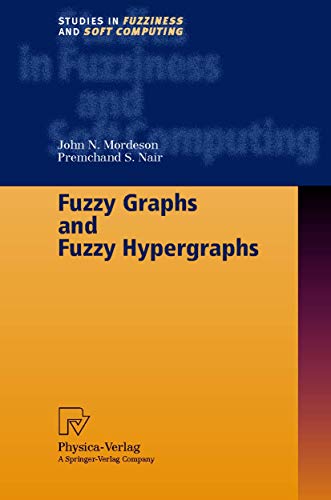
Synopsis
Any task that involves decision-making can benefit from soft computing techniques which allow premature decisions to be deferred. The processing and analysis of images is no exception to this rule. In the classical image analysis paradigm, the first step is nearly always some sort of segmentation process in which the image is divided into (hopefully, meaningful) parts. It was pointed out nearly 30 years ago by Prewitt (1] that the decisions involved in image segmentation could be postponed by regarding the image parts as fuzzy, rather than crisp, subsets of the image. It was also realized very early that many basic properties of and operations on image subsets could be extended to fuzzy subsets; for example, the classic paper on fuzzy sets by Zadeh [2] discussed the "set algebra" of fuzzy sets (using sup for union and inf for intersection), and extended the defmition of convexity to fuzzy sets. These and similar ideas allowed many of the methods of image analysis to be generalized to fuzzy image parts. For are cent review on geometric description of fuzzy sets see, e. g. , [3]. Fuzzy methods are also valuable in image processing and coding, where learning processes can be important in choosing the parameters of filters, quantizers, etc.
"synopsis" may belong to another edition of this title.
Other Popular Editions of the Same Title
Search results for Soft Computing for Image Processing
Soft Computing for Image Processing
Seller: Majestic Books, Hounslow, United Kingdom
Condition: New. pp. 612 Illus. Seller Inventory # 5669053
Buy New
Ships from United Kingdom to U.S.A.
Quantity: 1 available
Soft Computing for Image Processing
Seller: Books Puddle, New York, NY, U.S.A.
Condition: New. pp. 612. Seller Inventory # 262178914
Soft Computing for Image Processing
Seller: Biblios, Frankfurt am main, HESSE, Germany
Condition: New. pp. 612. Seller Inventory # 182178920
Buy New
Ships from Germany to U.S.A.
Quantity: 1 available
Soft Computing for Image Processing
Seller: GreatBookPrices, Columbia, MD, U.S.A.
Condition: New. Seller Inventory # 920714-n
Soft Computing for Image Processing
Seller: Lucky's Textbooks, Dallas, TX, U.S.A.
Condition: New. Seller Inventory # ABLIING23Apr0316110061092
Soft Computing for Image Processing
Seller: Ria Christie Collections, Uxbridge, United Kingdom
Condition: New. In. Seller Inventory # ria9783790812688_new
Buy New
Ships from United Kingdom to U.S.A.
Quantity: Over 20 available
Soft Computing for Image Processing
Seller: GreatBookPricesUK, Woodford Green, United Kingdom
Condition: New. Seller Inventory # 920714-n
Buy New
Ships from United Kingdom to U.S.A.
Quantity: Over 20 available
Soft Computing for Image Processing
Seller: GreatBookPrices, Columbia, MD, U.S.A.
Condition: As New. Unread book in perfect condition. Seller Inventory # 920714
Soft Computing for Image Processing
Seller: California Books, Miami, FL, U.S.A.
Condition: New. Seller Inventory # I-9783790812688
Soft Computing for Image Processing
Seller: BuchWeltWeit Ludwig Meier e.K., Bergisch Gladbach, Germany
Buch. Condition: Neu. This item is printed on demand - it takes 3-4 days longer - Neuware -Any task that involves decision-making can benefit from soft computing techniques which allow premature decisions to be deferred. The processing and analysis of images is no exception to this rule. In the classical image analysis paradigm, the first step is nearly always some sort of segmentation process in which the image is divided into (hopefully, meaningful) parts. It was pointed out nearly 30 years ago by Prewitt (1] that the decisions involved in image segmentation could be postponed by regarding the image parts as fuzzy, rather than crisp, subsets of the image. It was also realized very early that many basic properties of and operations on image subsets could be extended to fuzzy subsets; for example, the classic paper on fuzzy sets by Zadeh [2] discussed the 'set algebra' of fuzzy sets (using sup for union and inf for intersection), and extended the defmition of convexity to fuzzy sets. These and similar ideas allowed many of the methods of image analysis to be generalized to fuzzy image parts. For are cent review on geometric description of fuzzy sets see, e. g. , [3]. Fuzzy methods are also valuable in image processing and coding, where learning processes can be important in choosing the parameters of filters, quantizers, etc. 591 pp. Englisch. Seller Inventory # 9783790812688
Buy New
Ships from Germany to U.S.A.
Quantity: 2 available


